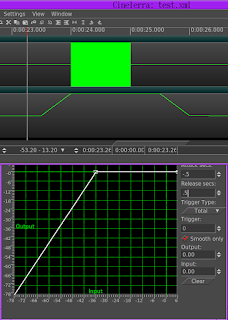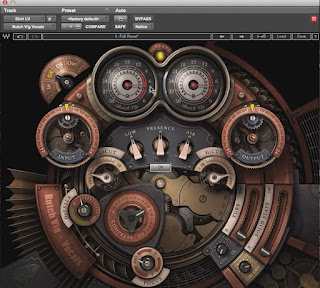
The original compressor of 19 years had problems. It couldn't be used to trigger 1 track off of another track because it lagged the peaks by random amounts. The output was also softer than necessary. Finally, a compressor which achieves constant time for the attack & manely constant time for the release, without an unnecessary lag before the release. It should give slightly louder results. It can also be daisychained without artifacts. Kiwipedia calls it adaptive compression. The release can rarely be constant time, in reality. This is what the audacity compressor claims to do, but lions have never actually tested it. Writing a compressor should really be a trivial matter of copying audacity or ffmpeg, but lions are made to suffer. To work in realtime, the compressor must read ahead by the longest of the attack & release times. A strange artifact of the compressor is to get a track to mirror the volume of another track, the ga...

